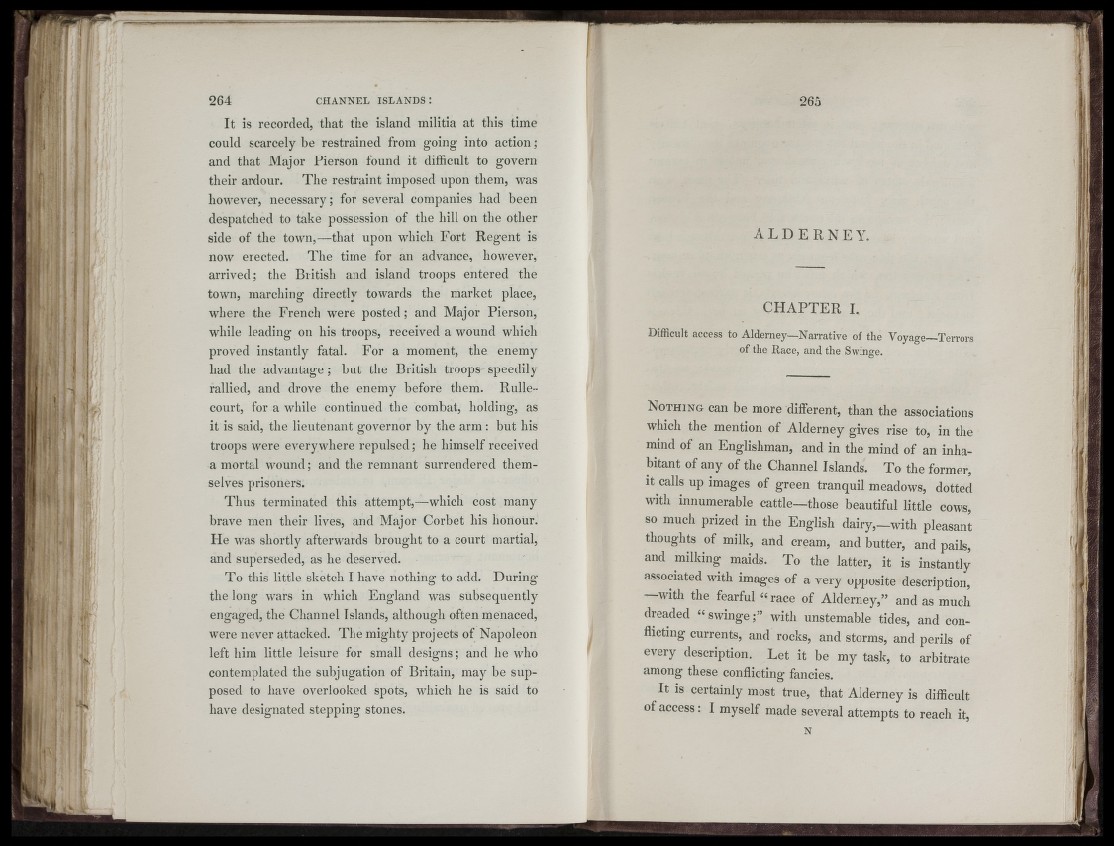
..i; : !.
: f ' i
E £ ! .
h-
>)
If
l i . •:
iXi '
ii
264 CHANNEL ISLANDS :
It is recorded, that the island militia at this time
could scarcely be restrained from going into action;
and that Major Pierson found it difficult to govern
their ardour. The restraint imposed upon them, was
however, necessary; for several companies had been
despatched to take possession of the hill on the other
side of the town,—that upon which Fort Regent is
now erected. The time for an adirance, however,
arrived; the British and island troops entered the
town, marching directly towards the market place,
where the French were posted; and Major Pierson,
while leading on his troops, received a wound which
proved instantly fatal. For a moment, the enemy
had the advantage; but the British troops speedily
rallied, and drove the enemy before them. Rullecourt,
for a while continued the combat, holding, as
it is said, the lieutenant governor by the arm : but his
troops were everywhere repulsed; he himself received
a mortal wound; and the remnant surrendered themselves
prisoners.
Thus terminated this attempt,—which cost many
brave men their lives, and Major Corbet his honour.
He was shortly afterwards brought to a court martial,
and superseded, as he deserved.
To this little sketch I have nothing to add. During
the long wars in which England was subsequently
engaged, the Channel Islands, although often menaced,
were never attacked. The mighty projects of Napoleon
left him little leisure for small designs; and he who
contemplated the subjugation of Britain, may be supposed
to have overlooked spots, which he is said to
have designated stepping stones.
265
A L D E R N E Y .
CH A PT ER I.
Difficult access to Alderney—Narrative of the Voyage—Terrors
of the Race, and the Swinge.
N o t h i n g can be more different, than the associations
which the mention of Alderney gives rise to, in the
mind of an Englishman, and in the mind of an inhabitant
of any of the Channel Islands. To the former.
It calls up images of green tranquil meadows, dotted
with innumerable cattle—those beautiful little cows,
so much prized in the English d airy ,-w ith pleasant
thoughts of milk, and cream, and butter, and pails,
and milking maids. To the latter, it is instantly
associated with images of a very opposite description,
—with the fearful “ race of Alderney,” and as much
draaded “ swinge;” with unstemable tides, and conflicting
currents, and rocks, and storms, and perils of
every description. Let it be my task, to arbitrate
among these conflicting fancies.
It is certainly most true, that Alderney is difficult
of access: I myself made several attempts to reach it,
111
N
H ii
: <1